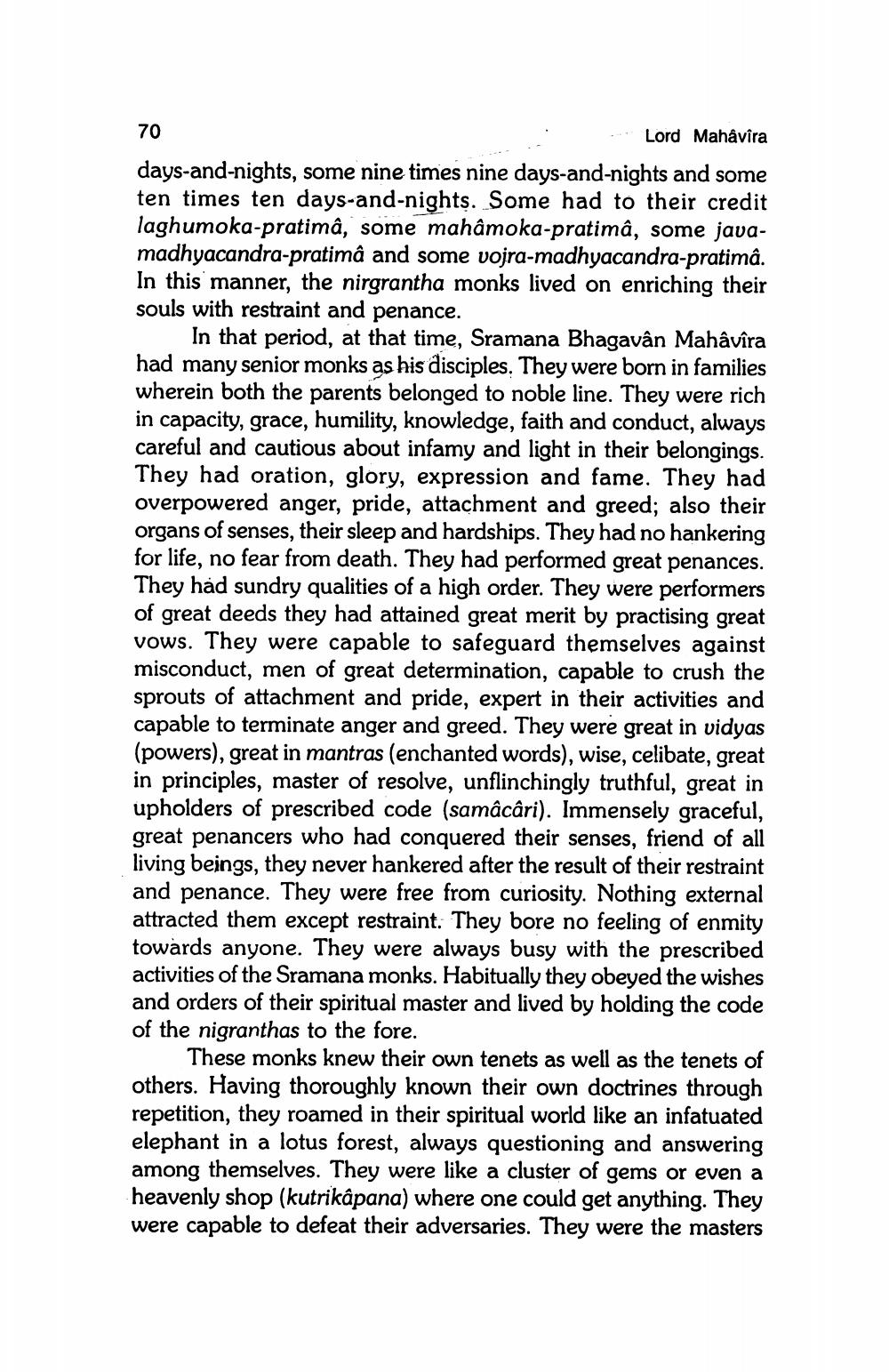________________
70
-
Lord Mahavira
days-and-nights, some nine times nine days-and-nights and some ten times ten days-and-nights. Some had to their credit laghumoka-pratimâ, some mahâmoka-pratimâ, some javamadhyacandra-pratimâ and some vojra-madhyacandra-pratimâ. In this manner, the nirgrantha monks lived on enriching their souls with restraint and penance.
In that period, at that time, Sramana Bhagavân Mahâvîra had many senior monks as his disciples. They were born in families wherein both the parents belonged to noble line. They were rich in capacity, grace, humility, knowledge, faith and conduct, always careful and cautious about infamy and light in their belongings. They had oration, glory, expression and fame. They had overpowered anger, pride, attachment and greed; also their organs of senses, their sleep and hardships. They had no hankering for life, no fear from death. They had performed great penances. They had sundry qualities of a high order. They were performers of great deeds they had attained great merit by practising great vows. They were capable to safeguard themselves against misconduct, men of great determination, capable to crush the sprouts of attachment and pride, expert in their activities and capable to terminate anger and greed. They were great in vidyas (powers), great in mantras (enchanted words), wise, celibate, great in principles, master of resolve, unflinchingly truthful, great in upholders of prescribed code (samâcâri). Immensely graceful, great penancers who had conquered their senses, friend of all living beings, they never hankered after the result of their restraint and penance. They were free from curiosity. Nothing external attracted them except restraint. They bore no feeling of enmity towards anyone. They were always busy with the prescribed activities of the Sramana monks. Habitually they obeyed the wishes and orders of their spiritual master and lived by holding the code of the nigranthas to the fore.
These monks knew their own tenets as well as the tenets of others. Having thoroughly known their own doctrines through repetition, they roamed in their spiritual world like an infatuated elephant in a lotus forest, always questioning and answering among themselves. They were like a cluster of gems or even a heavenly shop (kutrikâpana) where one could get anything. They were capable to defeat their adversaries. They were the masters




